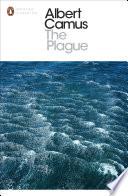Quotes from book
The Plague

The Plague is a novel by Albert Camus, published in 1947, that tells the story of a plague sweeping the French Algerian city of Oran. It asks a number of questions relating to the nature of destiny and the human condition. The characters in the book, ranging from doctors to vacationers to fugitives, all help to show the effects the plague has on a populace.

“...there are more things to admire in men than to despise.”
The Plague (1947)

The Plague (1947)
Context: The evil that is in the world always comes of ignorance, and good intentions may do as much harm as malevolence, if they lack understanding. On the whole men are more good than bad; that, however, isn't the real point. But they are more or less ignorant, and it is this that we call vice or virtue; the most incorrigible vice being that of an ignorance which fancies it knows everything and therefore claims for itself the right to kill. There can be no true goodness, nor true love, without the utmost clear-sightedness.

The Plague (1947)
Context: There always comes a time in history when the person who dares to say that 2+2=4 is punished by death. And the issue is not what reward or what punishment will be the outcome of that reasoning. The issue is simply whether or not 2+2=4.

“There can be no true goodness, nor true love, without the utmost clear-sightedness.”
The Plague (1947)
Context: The evil that is in the world always comes of ignorance, and good intentions may do as much harm as malevolence, if they lack understanding. On the whole men are more good than bad; that, however, isn't the real point. But they are more or less ignorant, and it is this that we call vice or virtue; the most incorrigible vice being that of an ignorance which fancies it knows everything and therefore claims for itself the right to kill. There can be no true goodness, nor true love, without the utmost clear-sightedness.

“At my age one's got to be sincere. Lying's too much effort.”
The Plague (1947)